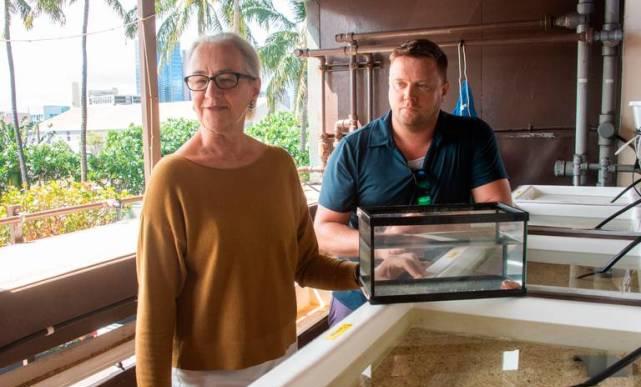According to the Associated Press, the National Aeronautics and Space Administration (NASA) sent squid from Hawaii to space to study how microgravity affects the interactions between animals and microorganisms.

These Hawaiian short-tailed squid are reportedly reared by the University of Hawaii's Kevalo Marine Laboratory, which was sent into space earlier this month with SpaceX's International Space Station replenishment mission. Jamie Foster, a researcher who completed his Ph.D. at the University of Hawaii, said he is studying the effects of spaceflight on squid in hopes of helping astronauts on long-term space missions maintain their health. Margaret McFall Ngai, a professor at the University of Hawaii, said: "When astronauts are in a low gravity state, their body's relationship with microbes changes. ”
"We found that in microgravity, the symbiotic relationship between humans and microbes is disturbed, and Jamie proved that this is true in squid," Ngay said. And because it's a simple system, it's easy to get to the root of the problem. Jamie further explains: "As astronauts spend more and more time in space, their immune systems become out of balance and will not be able to easily recognize bacteria, which causes them to sometimes get sick, and understanding the changes that occur in space for squid can help us address the health problems astronauts face." She added: "During a long space flight, some aspects of the immune system don't work properly. If humans want to stay on the moon or Mars for a while, we have to solve our health problems and get them there safely. ”
In addition to the squid, 5,000 miniature tardigrades have also been sent into space. These tardigrades are able to tolerate extremely harsh environments and survive without food or water for nearly 30 years, and experts will observe their behavior and state in microgravity to better understand the stressors that affect astronauts.
In fact, in addition to animals and microorganisms, plants are also regular visitors to space. In space travel, the seeds of some crops are brought to space, and in a completely vacuum environment, they are subjected to special factors such as space radiation and gravity, inducing genetic mutations and generating new traits, thereby obtaining benign traits such as better disease resistance and high yield, thereby increasing yields and obtaining greater social benefits.
Proofreader: Wu Jingzi